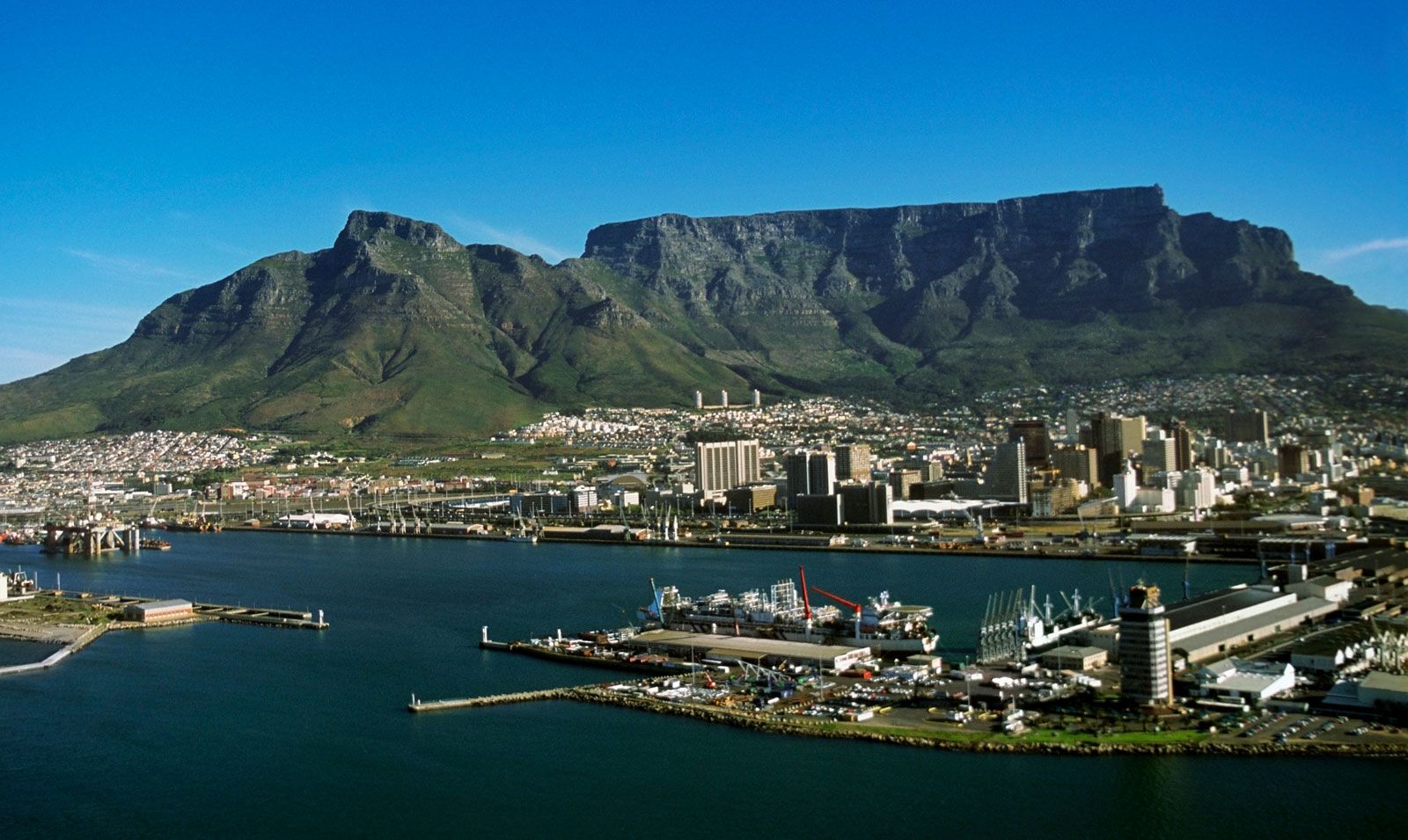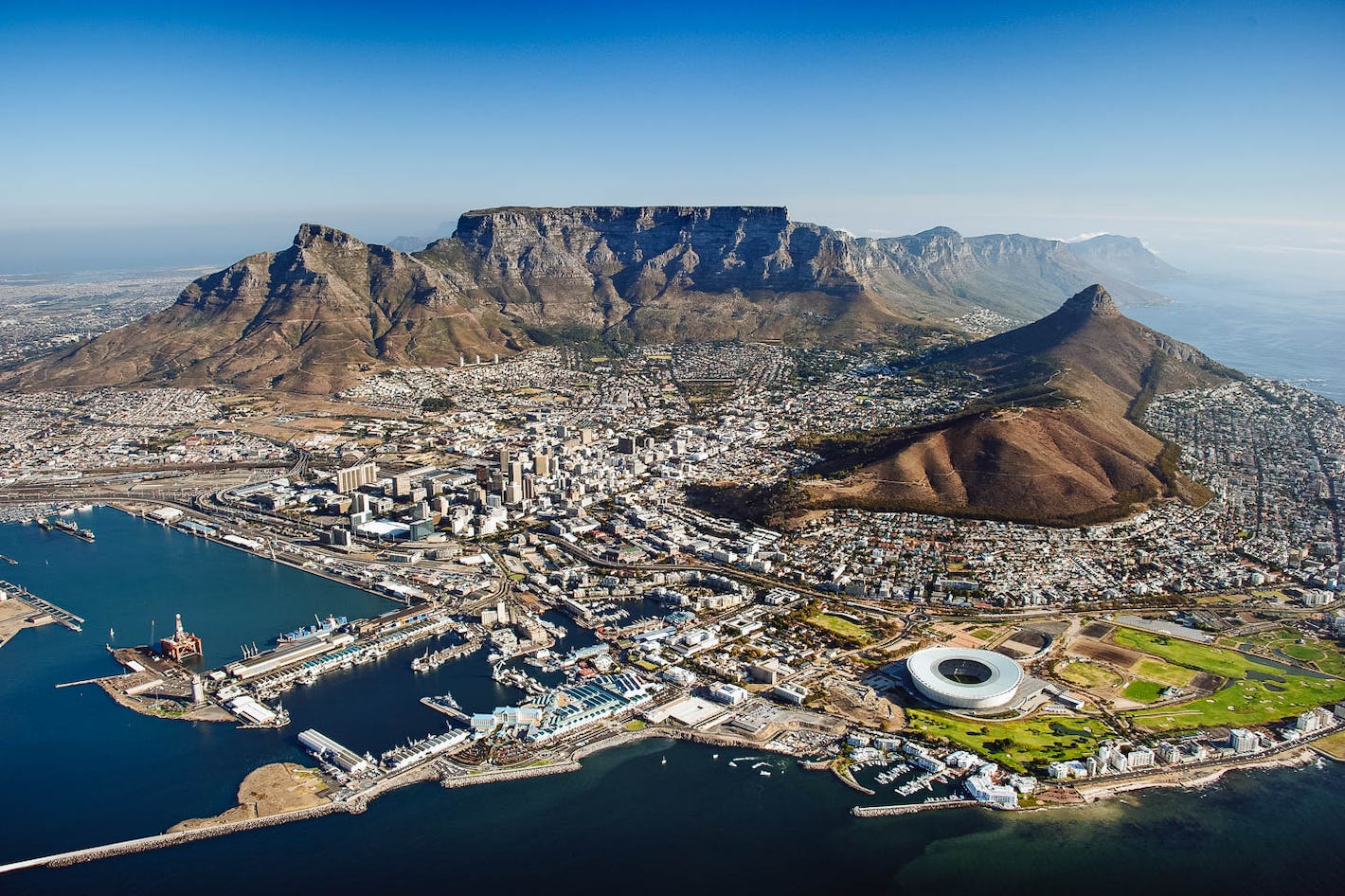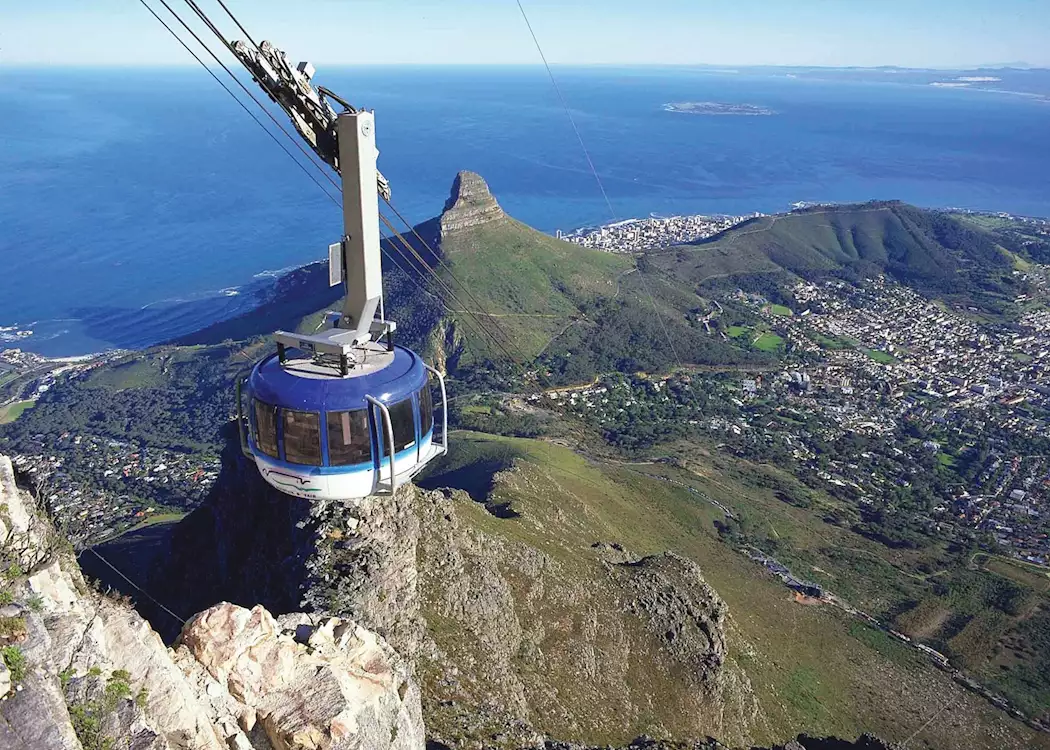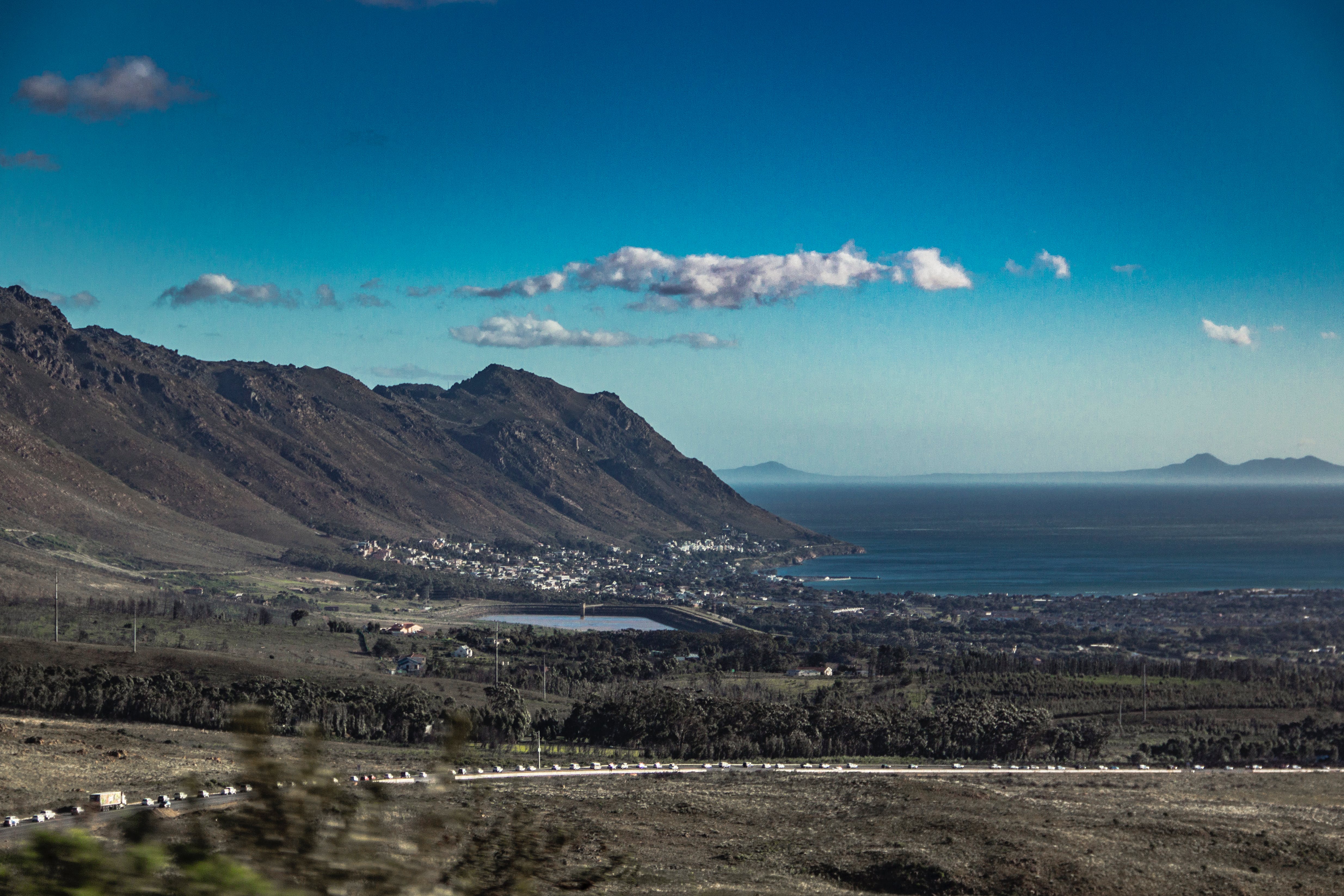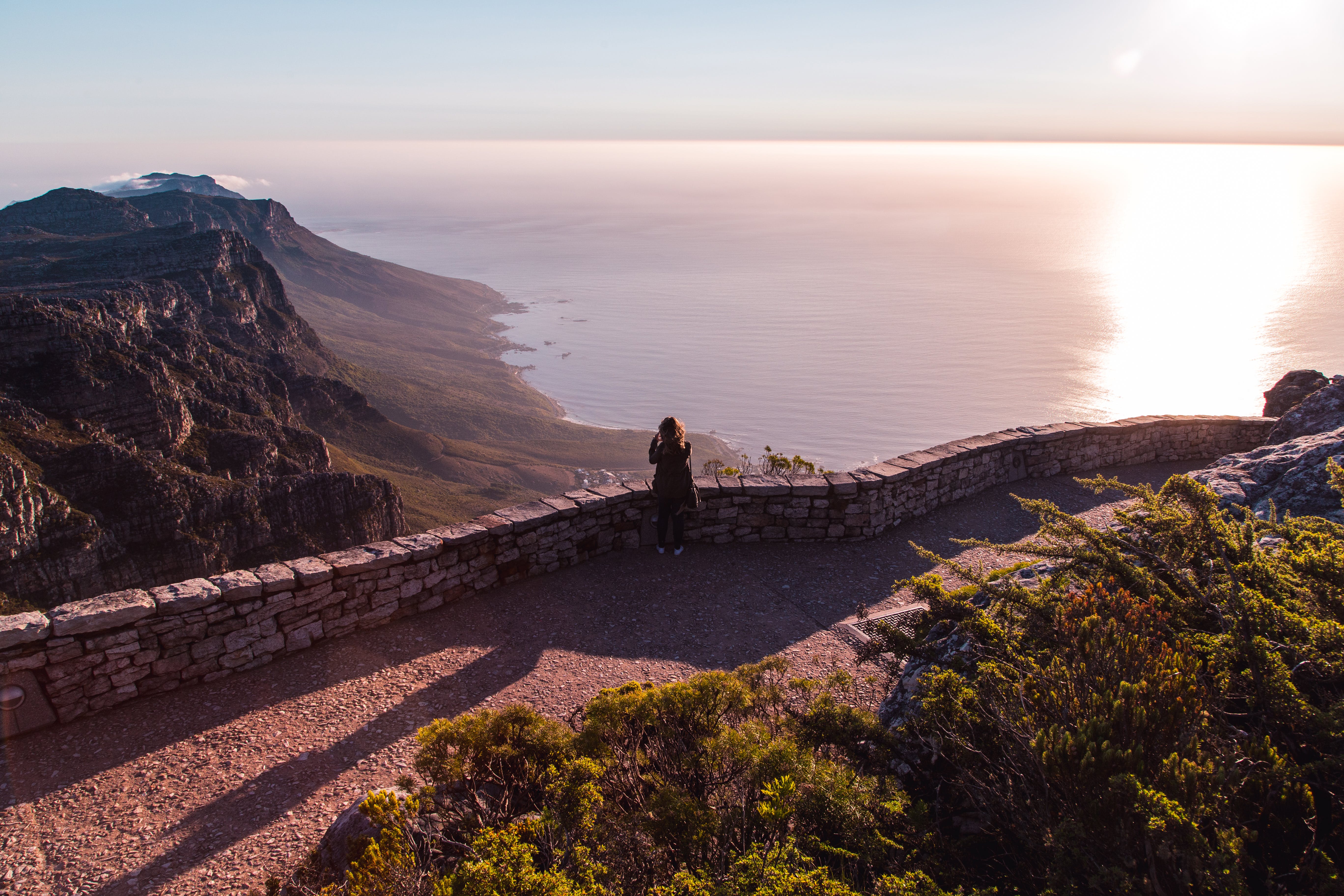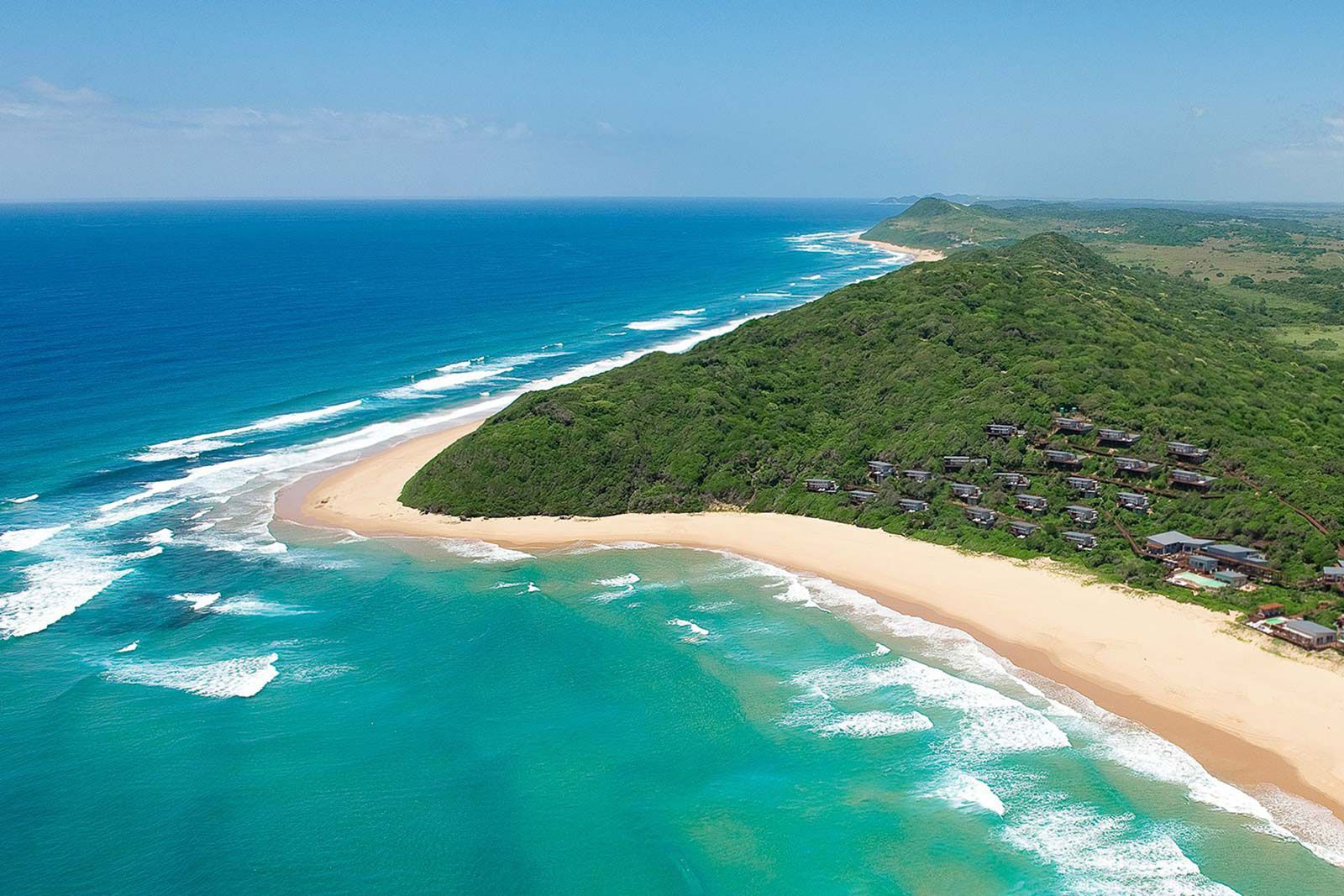Views Of Table Mountain
About
location:
Cape Town, SouthAfrica
Table Mountain is a flat-topped mountain located in Cape Town, South Africa. It is one of the most iconic landmarks in the country and a popular tourist attraction. The mountain gets its name from its distinctive flat summit, which resembles a table. Table Mountain is part of the Table Mountain National Park and offers stunning views of Cape Town and the surrounding area.
The mountain is approximately 1,085 meters (3,558 feet) high and is made up of layers of sandstone and granite. It is home to a diverse range of flora and fauna, including several endemic plant species. Table Mountain is also a popular destination for hikers and rock climbers, with numerous trails and climbing routes to explore.
One of the best ways to experience Table Mountain is by taking the cableway to the summit, where visitors can enjoy panoramic views of Cape Town, Robben Island, and the Atlantic Ocean. The mountain is a UNESCO World Heritage Site and plays a significant role in shaping the landscape and culture of Cape Town.
Things to know before travelling to Table mountain
This article is a tip of the iceberg but will equip you with the "Absolute Need to Knows" for Table mountain.
How to get there?
Getting to Table Mountain in South Africa is fairly simple. The mountain is located in Cape Town, which is served by Cape Town International Airport. Once you arrive in Cape Town, you can take a taxi or a shuttle bus to the base of the mountain.
There are also a number of guided tours that can take you to the top of the mountain. Once you're at the base of the mountain, there are a few different ways to reach the summit. You can take the cable car, which is the easiest option, or you can hike up one of the trails.
About the weather
The weather at Table Mountain is quite varied and can change rapidly. The mountain is known for its "tablecloth," which is a cloud that often covers the top of the mountain. This cloud can appear and disappear quickly, and it can also bring rain and wind.
In general, the weather at Table Mountain is best in the summer months, from November to March. During this time, the temperatures are warm and the skies are generally clear. However, it's important to be prepared for anything, as the weather can change at any time.
Medical matters that affect your visit
There are several medical matters that can affect your visit to Table Mountain in South Africa. Here are some of the key considerations:
Altitude Sickness
Table Mountain stands at an elevation of about 1,085 meters (3,560 feet) above sea level. Some visitors may experience symptoms of altitude sickness, such as headaches, nausea, and shortness of breath, especially if they ascend quickly to the summit. It is important to acclimatize gradually and stay hydrated to reduce the risk of altitude-related issues.
Sunburn and UV Exposure
South Africa has a high UV index, especially at higher altitudes. Visitors should take precautions to protect their skin from sunburn by wearing sunscreen, hats, and sunglasses. It is also important to stay hydrated and seek shade during peak sun hours.
Physical Fitness
Exploring Table Mountain often involves hiking or climbing, which can be physically demanding. Visitors should be in good physical condition and prepared for strenuous activities to avoid injuries or exhaustion.
Dehydration
The climate in South Africa can be dry, especially during the summer months. Visitors should drink plenty of water to stay hydrated, especially when engaging in physical activities.
Wildlife Encounters
While the risk is low, visitors to Table Mountain should be aware of the potential for encounters with wildlife, such as snakes or insects. It is important to stay alert, follow park guidelines, and know how to respond in case of an encounter.
Pre-existing Medical Conditions
Visitors with pre-existing medical conditions, such as asthma, heart problems, or allergies, should take extra precautions and carry necessary medications with them. It is advisable to consult a healthcare provider before visiting Table Mountain if you have any concerns.
Before visiting Table Mountain, it is recommended to research and prepare for any potential medical matters that may arise during your trip.
It is always a good idea to consult with a healthcare provider or travel medicine specialist for personalized advice based on your individual health needs.
Safety at Table Mountain
While Table Mountain is generally safe, there are a few things to keep in mind to stay safe. First, it's important to be aware of your surroundings and to avoid going off the beaten path. There have been reports of muggings and robberies on the mountain, so it's best to stay on the main trails and to avoid going alone.
It's also important to be aware of the wildlife on the mountain, including baboons and snakes. Baboons can be aggressive, and snakes can be dangerous. If you see either, do not approach them and instead head in the opposite direction.
The water is drinkable
Although at many restaurants you will be asked whether you'd like to kick off with still or sparkling, the Cape Town water is perfectly safe to drink. If you leave the city to visit smaller towns, ask the locals if they drink the water, although generally water in the Western Cape is perfectly drinkable.
Hide your food around baboons
Baboons are a part of life in Cape Peninsula. Most visitors will give these large-toothed primates a wide berth. But for others, the intrigue of seeing a monkey hang out on a beach or wander through a car park is too great.
Feeding the baboons is strictly prohibited. They will happily leap into an open car of an unsuspecting tourist to whip a picnic out of their hand. Or they will riffle through unattended bags on the Cape point beaches, whilst the owners look on dumfounded from the ocean. If you see baboons around, roll up the windows and stash the snacks.
Remember: Table mountain is still a mountain
Visible from pretty much every corner of the city, Cape Town's flat-topped mountain is the emblem and pride of South African capital. It's also a must see. Don't let it's proximity to the center fool you. Even on a sunny day the weather at the top is often cool and windy, so don't head up in your beach gear with no layers to add.
If you are hiking rather than taking the cable car, adopt the usual rules: don't go alone, always tell people where you're headed, stick to the marked trails, pre-plan your route. Every year there are tales of travelers who get lost on the mountain and have to rely on local search and rescue services to bring them back down.
Take local advise on which route to tackle. Some are safe while others should only be attempted with larger groups or in the company of a seasoned guide.
Don't forget to tip
Although expected amounts are not on a par with those in North America, South Africa has a tipping culture and many workers will expect you to add a little something onto the bill. In reastuarants and bars, 10% is acceptable, though 12-15% is better.
Give R5-10 to petrol pump attendants (you can't pump your own gas in South Africa) and R5-10 to informal parking guards, depending on the level of service they offer (some barely glance at your car, others will help you squeeze in and out of tight spaces).
Vital information on money matters
There are a few things to keep in mind when it comes to money matters at Table Mountain. First, the currency in South Africa is the South African Rand. There are ATMs available at the bottom of the mountain, and many businesses on the mountain accept credit cards.
However, it's always a good idea to have some cash on hand, especially if you plan to buy food or souvenirs. Additionally, keep in mind that there is an entrance fee to the Table Mountain National Park. The fee is around $10 for adults and $5 for children.
Fun things to do at Table Mountain
Hiking
Table Mountain offers a variety of hiking trails for all levels of hikers. You can choose from easy strolls to more challenging hikes that offer stunning views of Cape Town and the surrounding area. Make sure to check the weather forecast and bring plenty of water and sunscreen.
Cable Car Ride
If you prefer a more relaxed way to enjoy the views, you can take a ride on the Table Mountain Aerial Cableway. The rotating cable car offers panoramic views of Cape Town and the Atlantic seaboard as it ascends to the mountaintop.
Abseiling
For the thrill-seekers, Table Mountain also offers the opportunity to try abseiling down its sheer cliffs. Rappelling down the mountain is an exhilarating experience that provides a unique perspective of the area.
Sunset Viewing
Watching the sunset from Table Mountain is a magical experience. Pack a picnic and head up the mountain in the late afternoon to enjoy the changing colors of the sky as the sun dips below the horizon.
Birdwatching
Table Mountain is home to a variety of bird species, including the Cape Sugarbird and the Orange-breasted Sunbird. Birdwatching enthusiasts can spend hours spotting colorful feathered friends in their natural habitat.
Photography
Table Mountain provides endless opportunities for photography enthusiasts to capture stunning landscapes, flora, and fauna. Be sure to bring your camera or smartphone to document your adventure.
Guided Tours
To learn more about the history, geology, and biodiversity of Table Mountain, consider taking a guided tour led by knowledgeable local guides. They can provide insights and stories that will enhance your experience on the mountain.
Rock Climbing
For experienced climbers, Table Mountain offers a range of challenging rock climbing routes. Whether you're a beginner or a seasoned climber, you can find routes that suit your skill level and enjoy the thrill of climbing on one of the world's most iconic mountains.
Remember to always prioritize safety during your visit to Table Mountain, follow the park's guidelines, and be prepared for changes in weather conditions. Enjoy your adventure at this incredible natural wonder in South Africa!
Who can travel to Table Mountain?
Anyone can visit Table Mountain National Park, but there are a few things to keep in mind. First, the park is located at a high elevation, so it's important to be in good physical condition before you visit.
Second, the trails can be steep and uneven, so it's important to wear appropriate footwear. And finally, the weather can be changeable, so it's important to dress in layers and bring a raincoat. With that said, the park is generally accessible to most people, regardless of age or ability.
Travel Documents
You will need a valid passport and visa to enter SouthAfrica. Make sure your passport is valid for at least six months after your travel date and check if you need to obtain a visa before traveling.
What time of the year is best to visit?
If you're looking for the best weather and the fewest crowds, the best time to visit Table Mountain is in the shoulder season, from September to November or March to May. During these months, the weather is generally mild and dry, and the park is not as crowded as it is during the peak summer months of December to February.
In addition, you may be able to find better deals on accommodation and other services during the shoulder season. And if you're interested in wildlife viewing, spring is a great time to visit, as the park is full of wildflowers and newborn animals.
Packing essentials for your trip
Here are some packing essentials for a trip to Table Mountain in South Africa:
Clothing
South Africa has a moderate climate, so pack lightweight clothing for the daytime and layers for cooler evenings. Consider packing a windbreaker or a light jacket. Don't forget comfortable walking shoes or hiking boots if you plan on exploring the mountain trails.
Sun Protection
The sun in South Africa can be strong, so pack sunscreen with a high SPF, sunglasses, a wide-brimmed hat, and lip balm with UV protection.
Water
Stay hydrated by packing a reusable water bottle. It's important to drink plenty of water, especially when hiking or spending time outdoors.
Snacks
Pack some energy-boosting snacks like granola bars, nuts, or fruit for your hike up Table Mountain.
Camera
You'll want to capture the stunning views from Table Mountain, so don't forget your camera or smartphone for photos.
First Aid Kit
It's always a good idea to have a basic first aid kit with essentials like bandages, pain relievers, antiseptic wipes, and any personal medications.
Map or Guidebook
Bring a map or guidebook of Table Mountain to help navigate the trails and learn more about the area.
Reusable Bag
Consider bringing a reusable bag for any souvenirs or items you might pick up along the way.
Mobile Phone and Charger
Make sure to bring your mobile phone for emergencies and to stay connected. Don't forget a portable charger to keep your phone charged while out exploring.
Travel Documents
Keep important documents like your passport, ID, travel insurance information, and any reservations in a secure, waterproof pouch.
Remember to check the weather forecast before you go and pack accordingly. Enjoy your trip to Table Mountain in South Africa!
view map
Book Flight ticket
If this widget is not showing try reloading the page
The flight search result will be provided in a new tab
Cape Town international airport will be a good destination if you are coming from outside SouthAfrica.
Book Hotel
If this widget is not showing try reloading the page
The hotel search result will be provided in a new tab
Input Cape Town as the city name to search and compare hotel prices.
You can book book tours at hotels upon arrival.
